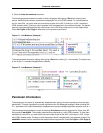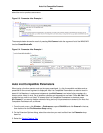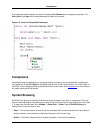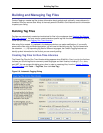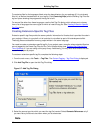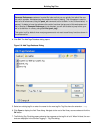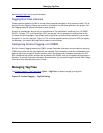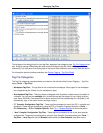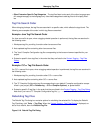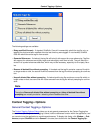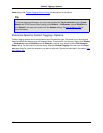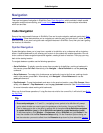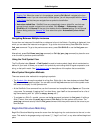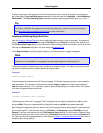
The left pane of the dialog lists all of your tag files, separated into categories (see Tag File Categories be-
low). A tag file having a File bitmap with blue arrows indicates the tag file is built with support for cross-
referencing. The right pane of the dialog lists all the source files indexed by the currently selected tag file.
For information about the buttons available, see Context Tagging - Tag Files Dialog.
Tag File Categories
The Tag File categories, described below, are listed on the left side of the Context Tagging ® - Tag Files
dialog (Tools → Tag Files).
• Workspace Tag Files - The tag files for the current active workspace. Each project in the workspace
has a separate tag file. Visible only if a workspace is open.
• Auto-Updated Tag Files - These tag files are designed to be shared by multiple users of the editor on
a network. You can use the vsmktags utility to rebuild these tag files as part of your nightly build pro-
cess. When SlickEdit® Core detects that a newer version of an auto-updated tag file is available, it will
automatically copy in the newer version and begin using it.
• "C" Compiler Configuration Tag Files - These tag files correspond to one of the C/C++ compiler con-
figurations. These may be configured by using the C/C++ Compiler Properties dialog box (Tools →
C++ Refactoring → C/C++ Compiler Options). See C/C++ Compiler Settings for more information.
• "Java" Compiler Configuration Tag Files - These tag files correspond to one of the Java compiler
configurations. These may be configured by using the Java Compiler Properties dialog box (Tools →
Tag Files → Auto Tag and click the Browse button beside the Java Compiler drop-down menu.
Managing Tag Files
71



